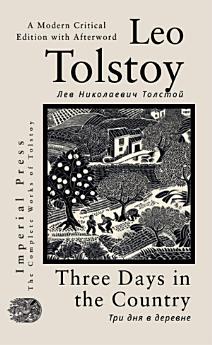Three Days in the Country
About this ebook
"Three Days in the Country," or "Три дня в деревне" in Russian, was written in 1909 and published in 1910. It appeared in the journal "Вестник Европы" (Vestnik Evropy). This work belongs to Tolstoy's later period, a time when his focus had shifted significantly towards moral and philosophical inquiries, often expressed through shorter narratives and essays.
The story is characterized by a somber tone, depicting the "well-being of the wealthy" which Tolstoy held in disdain. It is described as a "depressing text" that leads the reader to the realization that Tolstoy, despite his own privileged background, could vividly describe the pervasive misery of the poor but found himself largely powerless to alleviate it. This work thus serves as a powerful commentary on the entrenched social disparities of early 20th-century Russia and the ethical dilemmas faced by those who recognized such injustices but struggled to enact meaningful change.
This critical reader's edition presents a modern translation of the original manuscript, crafted for the modern reader with clean, contemporary language and simplified sentence structures that clarify his complex Russian phrasing and specific antiquated references. Supplementary material enriches the text with autobiographical, historical, and linguistic context, including an afterword by the translator on Tolstoy’s personal history, impact, and intellectual legacy, an index of the philosophical concepts he employs—emphasizing Existentialism and influence by Schopenhauer—a comprehensive chronological list of his published writings, and a detailed timeline of his life, highlighting the personal relationships that shaped his philosophy.







